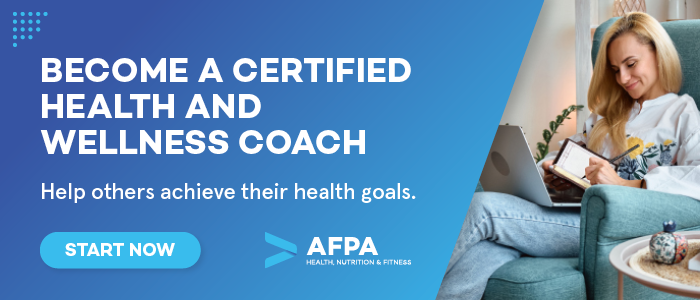If you want to become a holistic health coach, you’re not alone. Recent statistics show that the numbers of people attaining holistic health certifications are on the rise, and for good reason. According to the Huffington Post, which cited the latest MetLife Annual Employee Benefits Trends study, almost half of employers offer wellness programs, and in companies with over 500 employees, the share jumps to over 75%.That’s not even counting the amount of Americans who are frustrated with medical bills that are piling up, weight-loss plans that are not working, combined with feeling stressed and fatigued all the time — who are seeking other answers to their problems, and are now intrigued by the now trending idea of holistic health.
Certain things that were not so mainstream to Americans 10 or 15 years ago, like organic foods, yoga, and essential oils, are now common water cooler topics, and wellness facilities are springing up on every corner, right next to coffee shops and fast-food eateries. You probably have at least a dozen friends on Facebook or Twitter who sell essential oils and rave about their benefits, using them in everything from their waters to their household cleaning products. These businesses have become successful, largely in part because of people are finally realizing what’s truly important to them, and that is family, friends, and their health and wellness. They’ll spare absolutely no expense to find ways to live happier and healthier lives, and holistic health coaches are necessary to that entire process.
But how can you become a holistic health coach? When choosing any new career path, you may be completely overwhelmed at first, and it’s extremely helpful to have guidance and advice. Becoming a Holistic Health Coach is no exception, but fortunately, we are here to help!
Here are a few simple things that you can do to get started on a path to your dream career of being a holistic health coach:
For starters, you should understand what being a Holistic Health Coach truly encompasses.
Holistic health coaches will generally meet with clients and conduct an interview, assess their current health, as well as observe any conditions that may present. They may work with the client to determine if there are any allergies or stressors that in many cases, the client may not have even realized they had. They may do a strength or weakness test. They will then work with the client to develop health goals. Additionally, they may provide counseling, talk therapy, and different methods of holistic healing like healing touch or reiki. Finally, they will document the client’s progress and meet regularly to follow up on the client’s goals and where they stand in terms of meeting them. They may even provide some kind of blueprint or action plan that the client can follow, made up of small, attainable steps. Of course, they will also provide a ton of encouragement and a supportive, warm space along the way.
Holistic healers generally agree that you should “do no harm” and “start with the least harmful treatment”, moving up from there in terms of aggressiveness in treatment. The theory is that instead of just throwing medicine, pharmaceuticals, and even surgery at a problem, clients should use other remedies wherever possible, to heal from within. These may include potential remedies like changing your diet, getting more exercise, or even using natural and herbal remedies. Positive change comes from within, and must be natural to be sustainable.
Next, you should decide which type of Holistic Health Coaching is Right for You.
Holistic Health encompasses a wide variety of programs and things that can contribute to a person’s whole health picture. Typically, holistic health refers to nutrition, but it can also talk about any kind of healthy habit changes that affect the entire body and are all-natural. The word holistic can also refer to having a well-rounded body, as in looking at the “whole picture”. Often, holistic coaches will look at job patterns, relationships, physical fitness, extra-curricular activities, and even spirituality to get to the root of a problem that has developed in a client’s life. Every single component of a person’s life can affect their health and well-being, therefore it is super important that a holistic health coach be able to get a full picture of the client’s life.
Learn How to Become a Certified Holistic Health Coach Online

Coaches can be specifically focused on one of the following areas:
Nutrition includes more than following standard dietary guidelines. A holistic health coach will also focus on supplements, potential food intolerances or allergies, and finding a balance in the types of foods and nutrients their client requires. They may also look at essential oils, and using them to treat a client’s illnesses or pain. They may suggest moderate and sustainable changes in diet to help with weight loss.
Fitness goals for a holistic health coach and his or her client will focus on the needs of that individual, as well as their abilities and limitations. Coaches can adapt workouts and therapeutic activities to help a client recovering from childbirth, surgery or injuries, or help a client begin a fitness routine and integrate activity into a daily routine. This can include conventional aerobic or cardio workouts as well as yoga, rock climbing, dancing, Pilates or strength training, to name a few. The fitness coach will also come up with an action plan for what types of activities to avoid to avoid further injury or stress.
Physical health extends beyond training or exercise and also encompasses treatments by chiropractors, acupuncturists and massage therapists.
And although a holistic health coach may have a certain specialty, they almost all understand that a true holistic coach is going to want to look at every single component of the client’s life.
Next, you’ll need to get certified.
AFPA (American Fitness Professionals & Associates) offers a variety of certification programs. You can get started with a nutrition certification, and then move on to certifications in holistic nutrition, health and wellness coaching, weight management, and even sports, senior, and youth nutrition programs. You’ll find details for all of these programs here. The best part of all of these programs is that you can enroll at a relatively low-cost investment, and you can select a monthly payment plan so that most everyone regardless of income can qualify.
The AFPA certification program is one of the most comprehensive ones out there, and is the perfect fit for someone who may not necessarily have the money or time to pursue a 4 year program at a college or university. Course study materials are delivered online and/or to your doorstep. You’ll be able to learn at your own pace (and without traveling). You will have assignments to complete and when you’re ready, you’ll be able to complete the final certification examination. Most people complete their course in under 6 months. Once you have completed one of these certification program you will qualify for Board Accreditation and Professional Liability Insurance should you wish to pursue those options.
You may also want to pursue training or education in other disciplines.
Holistic health coaches focus on a person’s physical, mental and emotional health in a way that other health professionals do not. Because holistic coaches work with many disciplines, they often require education or training that includes nutrition, natural and traditional medicines and kinesiology. Practitioners can also obtain licensure in a different type of healthcare and add a certification for health coaching. A coach’s education and certification can include a bachelor of science in nursing, a degree in sports medicine or physical therapy, or certifications in naturopathy and homeopathy. Some coaches choose to add psychological studies or training to be able to offer mental health coaching or care as well.
You may also want to take yoga, pilates, reiki, healing touch, and many of the other things we’ve mentioned as a client, so that you’ll be able to learn from those experiences and pass on your knowledge to your clients, as well as referrals to good practitioners and studios in your area. You shouldn’t ever recommend a supplement, oil, or discipline that you haven’t tried yourself so it’s important that you use your time wisely and start learning as much as you can about all of these complimentary disciplines.
By following the simple tips above, and attaining your certification, In no time at all, you’ll be practicing as a Holistic Health Coach! You’ll be able to start your own practice, or work in conjunction with a spa, fitness center, workplace wellness center, weight loss center, school, or supplement business. For more information or tips on how to jumpstart your health coaching career, you can view another helpful blog here: 25 Things You Need To Know About Becoming A Holistic Health Coach, or check out our website at AFPAFitness.com.
With AFPA’s comprehensive training program, you can learn how to become a yoga instructor.




